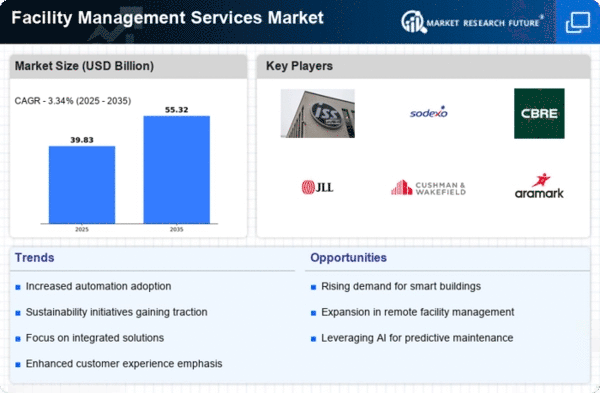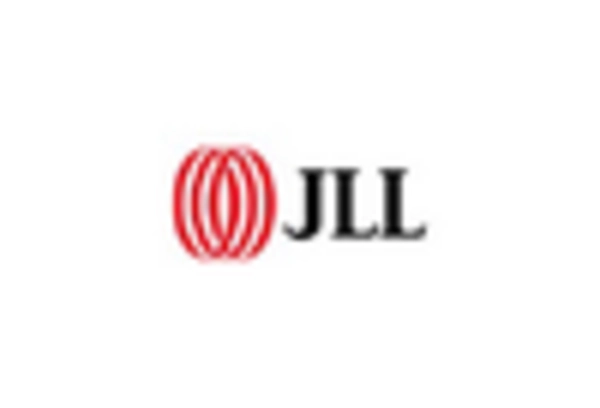Market Trends
Key Emerging Trends in the Facility Management Services Market
Tourism stands as a formidable economic force in nations like France, Spain, and the US, acting as a significant revenue generator and cultural wealth contributor. It serves as a crucial engine for economic development and growth, particularly benefiting from the globalized landscape. The World Tourism Organization (WTO) notes a notable increase, ranging from 50 to 60 percent, in individuals recurrently traveling to different countries, prompting increased investments in developing the tourism sector in numerous nations. However, the global economy, growing at a 3% rate according to the World Bank, has faced challenges impacting the hospitality and tourism sectors worldwide. The severe repercussions of COVID-19 led to a 93% decline in international tourist activities in June 2020, marking 2020 as one of the worst years for these sectors.
In response, countries implemented various strategies and campaigns to showcase the appeal of their tourist destinations, aiming to revive these sectors and contribute to an overall increase in per capita income. The substantial growth in tourism and hospitality has played a pivotal role in propelling the facility management services market forward at a rapid rate during the study period. As these sectors recover and adapt to new norms, the demand for facility management services continues to rise, supporting the diverse needs of businesses in the tourism and hospitality industry. Facility management services play a pivotal role in the day-to-day operations of organizations, ensuring the delivery of services offered by businesses. In the highly regulated landscape of various industries, encompassing safety training, data protection, and onsite management, facility management services become indispensable. The primary goal of these services is to document and establish compliance, aiding businesses in achieving their defined objectives.
These services contribute to the formulation of strategic plans that align with both long-term and short-term goals, focusing on aspects like profit generation and cost reduction. The emphasis on compliance is rooted in core business knowledge, and facility management services strive to automate error-prone and complex manual procedures. Recognizing the unique nature of businesses and the regulations governing them, these services, for example, navigate International Traffic in Arms Regulations (ITAR) restrictions that prohibit non-US citizens from entering facilities with national security interests. By ensuring proper control and procedures to protect privacy, facility management services become instrumental in supporting compliance. The imperative to comply with environmental and regulatory norms is anticipated to be a driving force propelling the facility management services market at a high rate during the forecast period. As businesses increasingly prioritize adherence to these norms, the demand for facility management services is set to surge.



















Leave a Comment